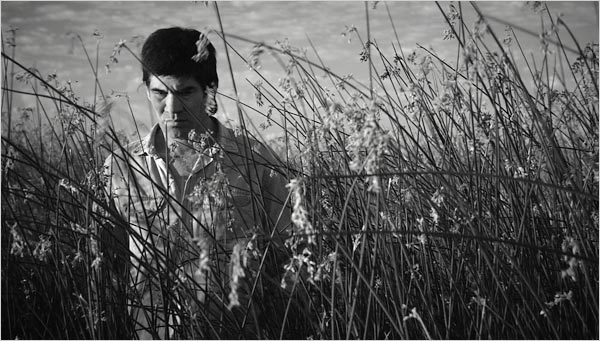|
Reviews of Recent Independent, Foreign, & Documentary Films in Theaters and DVD/Home Video

LA LEÓN
Life on the Paraná Delta in northern Argentina is slow and quiet. The small group of people left there ekes out a living from harvesting the reeds along the riverbanks, separated from each other by the vast expanse of the river. The small, flimsy watercraft owned by most can only take them so far. Travel to the outside world is then dependent on El Turu (Daniel Valenzuela), one of the most powerful men in the community. He owns El León, his water taxis. A proud, swaggering, barrel-chested man, El Turu is the proverbial big fish in a small pond, wielding the kind of influence you’d find in a small-town mayor. He’s deeply resentful of outsiders, whether they’re foreign loggers or one of the community’s own, such as Alvaro (Jorge Román), a young man who lives a quiet life mostly apart from what is already an insular world. Like the others, Alvaro works at cutting reeds, with the occasional forays into logging and some bookbinding for the library on the mainland. Alvaro is also gay, and although evidence of this is kept to the occasional hook-up with anonymous passing tourists or other outsiders, suspicion about his sexuality seems to be at the root of El Turu’s hostility towards the young man. However, El Turu’s anger at Alvaro turns out to be more about himself and the complex feelings he harbors within. Director Santiago Otheguy is fond of long close-ups, and in a movie short on dialogue, the actors’ faces are left to do the work, and they do it admirably. The conflict between the two men is visceral and apparent long before they even exchange a word. The landscape is itself the main character. Otheguy’s camera glides smoothly with the slow current of the river; the wide expanse of the delta in the wide shots emphasizes the distance, both literal and figurative, between the people in the film. Otheguy said that he chose to shoot the film in black and white in order to move away from a “documentary aesthetic.” However, it’s not a pure black and white—rather, the film has a brown, almost sepia tone, almost as if it was filmed in color and then shown in black and white. It has the appearance of a world that has had the color drained out of it, which lends a dreamlike quality. La León
is a slow developing film, and the alienation felt by the
characters is a particularly masculine one; there are few women in this
film and those that are there have little to do. It’s easy to see the
climax coming—there are really no surprises here. But Otheguy’s vision
of the river is undeniably powerful, and the memory of the river, with
its infinity and inevitability, are what will stay with you.
Kirsten Anderson
|

